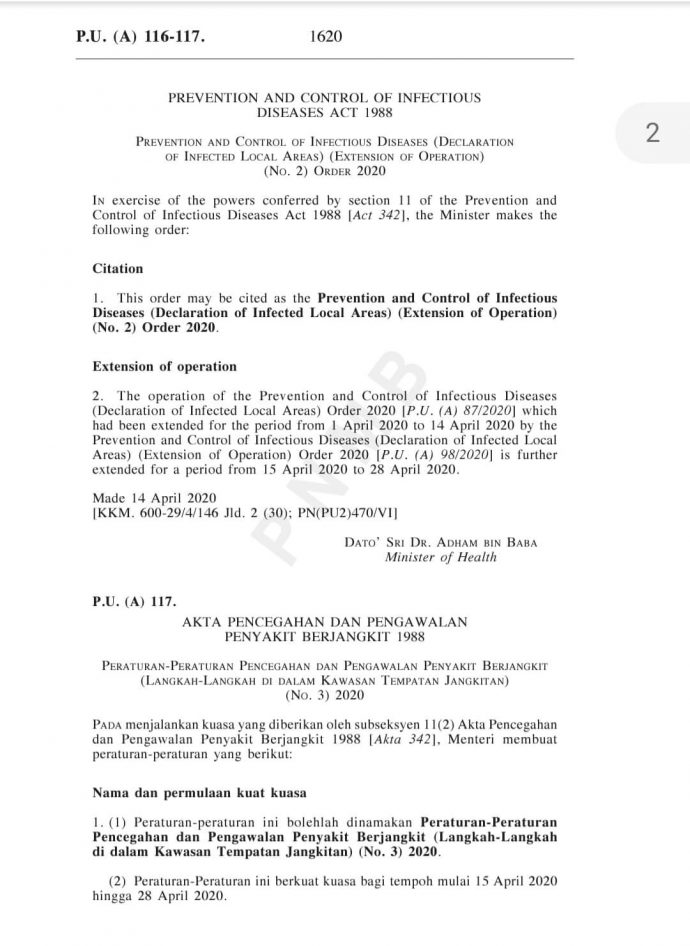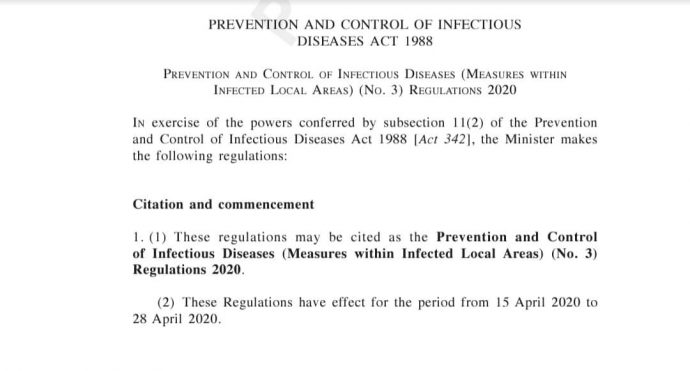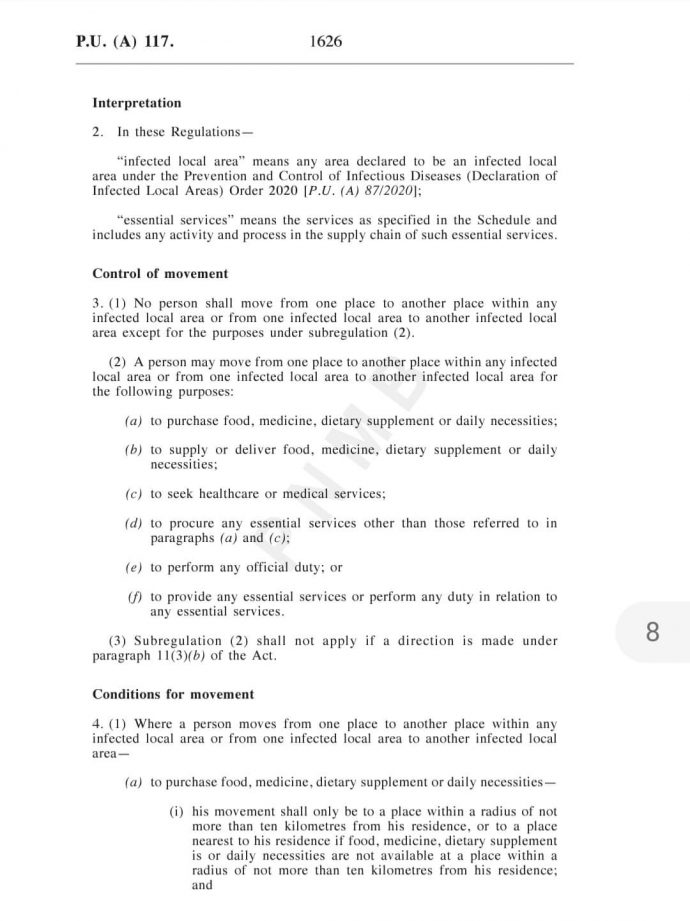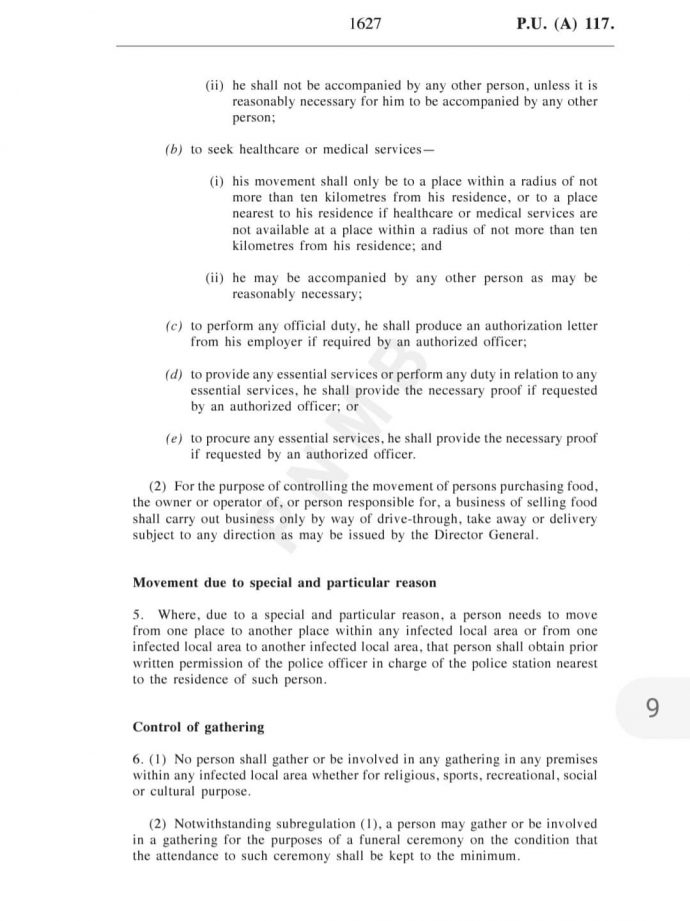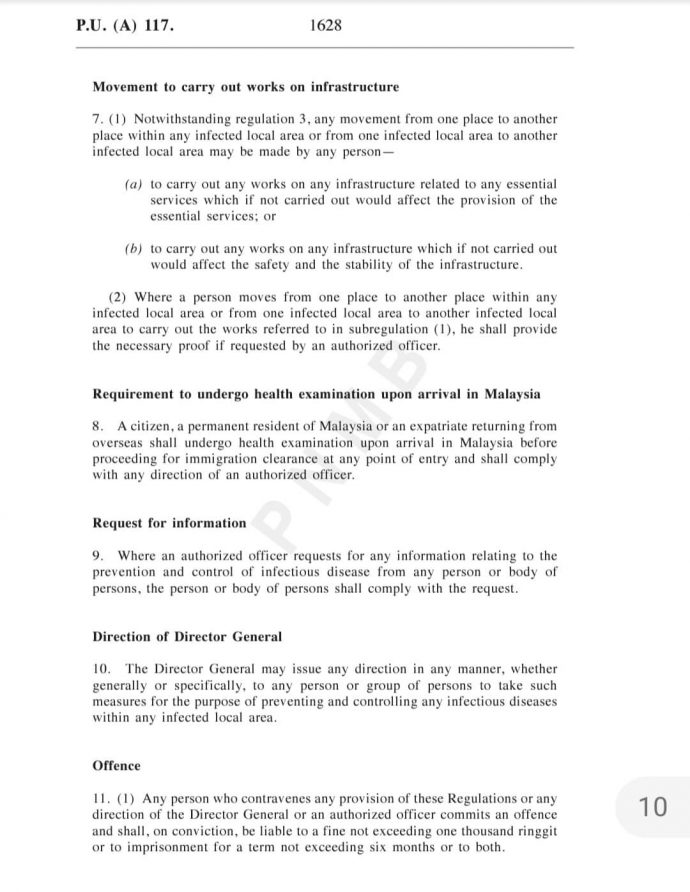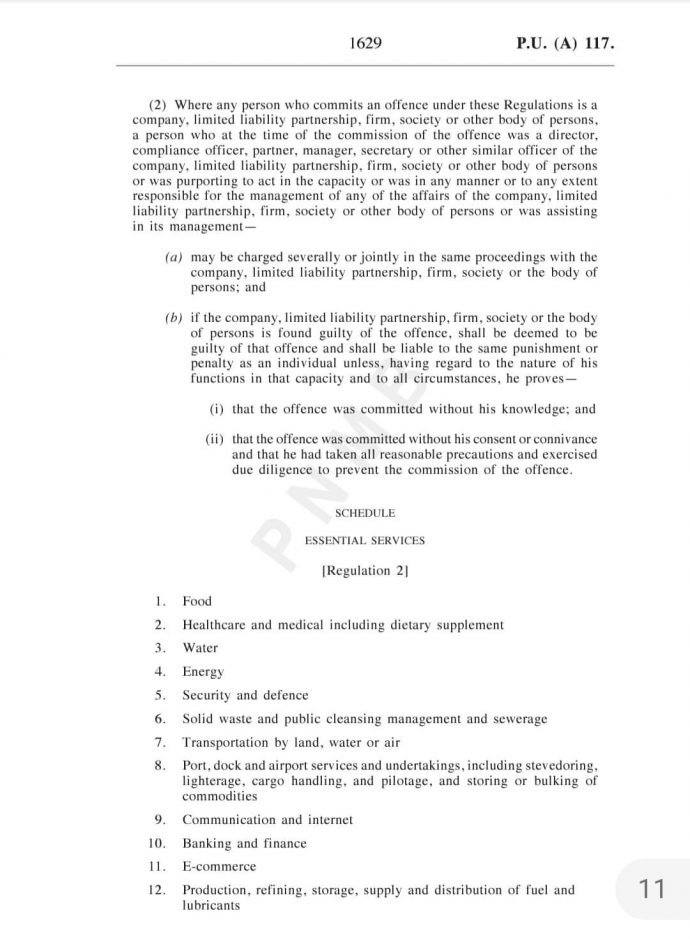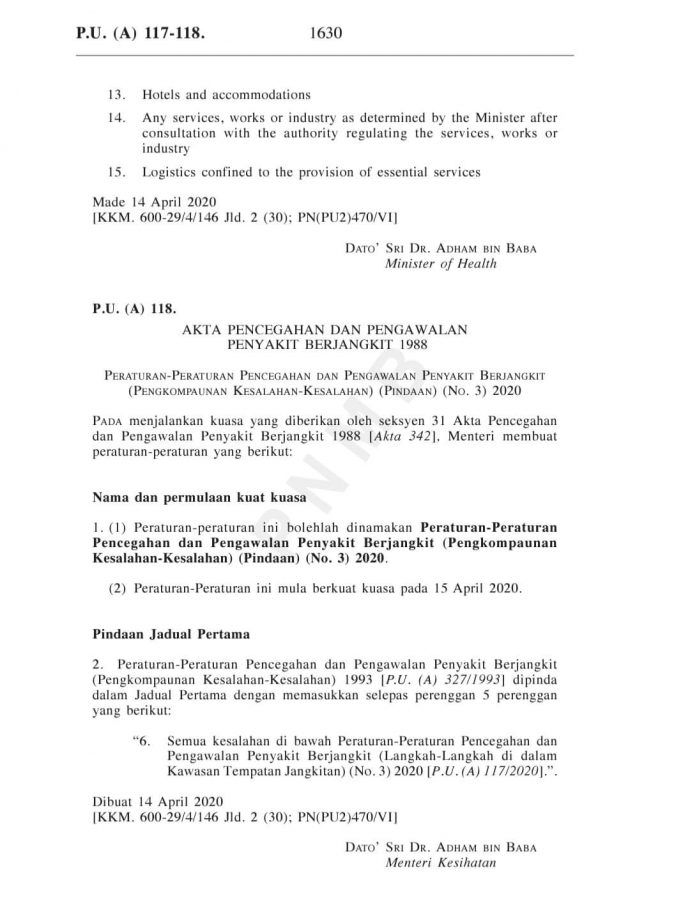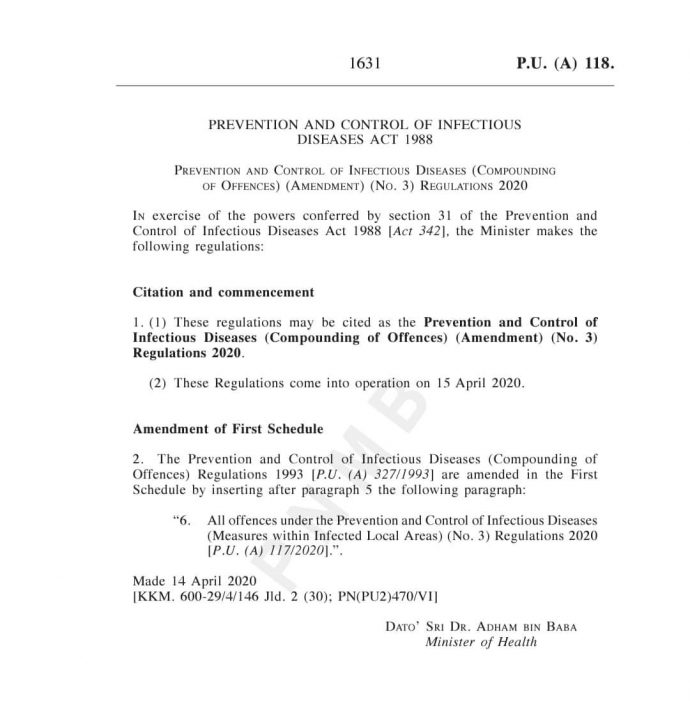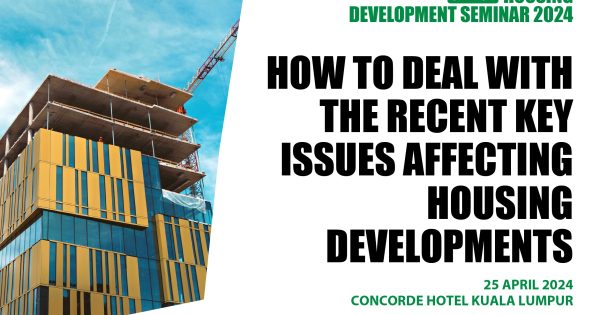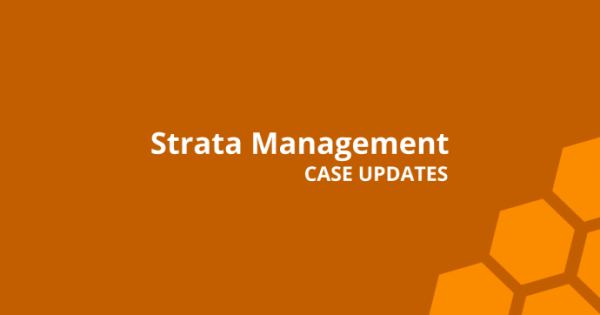We have in our previous postings provided updates to the official directives issued by the Ministry of Housing and Local Government (Kementerian Perumahan dan Kerajaan Tempatan) (“KPKT”). KPKT’s efforts are commendable especially during the MCO period, everyone is to stay at home and in urban areas, a high percentage of the population stays within a strata scheme.
If a Developer / JMB / MC enforces the directives strictly, this will go a long way to curb the spread of Covid 19 and may also create a ripple effect leading the road to recovery from the clutches of Covid 19.
At the time of writing, the most recent directives were issued through a series of FAQs and the most relevant ones were translated (from BM to English) in our previous posting.
There are several very important directives given eg: suspending the use of all common facilities, reducing the property management role to only undertaking essential services and disallowing delivery personnel to enter into the strata scheme but only up to the point of security guard post.
Those directives prevent the movement of persons achieving the very core objective of MCO.
But after revealing the FAQs, we have many who questioned the validity of such directives. For instance, we have a JMB wanting to open the swimming pool.
So 2 main questions arise as to:
- How do we enforce these directives?
- If one breaches it, what can a Developer / JMB / MC / Subsidiary Management Corporation (SMC) do?
Duty to enforce By-Laws and Additional By-Laws
Firstly, it is a duty of a Developer, JMB, MC and Subsidiary Management Corporation (“SMC”) to enforce by-laws. This is expressly provided for in Sections 9(2)(g), 21(1)(h), 59(1)(h), 64(3)(c) of the Strata Management Act 2013 (“SMA 2013”).
There is also Paragraph 3(8) Third Schedule, Strata Management (Maintenance and Management) Regulations 2015 which are usually overlooked and it reads that the Developer / JMB / MC / SMC shall administer and enforce the by-laws and any additional by-laws made under the SMA 2013.
Knowing that it is a duty to enforce by-laws, we now need to know what are (i) by-laws and (ii) additional by-laws.
By Laws and Additional By-Laws
In the context of SMA 2013, By-Laws are the regulations made by the Minister by virtue of Section 150 SMA 2013. By virtue of Regulation 5 Strata Management (Maintenance and Management) Regulations 2015 these by-laws are expressly set out in the Third Schedule of Strata Management (Maintenance and Management) Regulations 2015. There are 30 paragraphs with many sub paragraphs in the Third Schedule By-Laws.
Section 150 SMA 2013 provides that the Minister may (after consultation with the National Council for Local Government) make regulations for the better carrying out of the provisions of the SMA 2013.
These By-Laws in the Third Schedule shall have effect in relation to every strata development area by virtue of Sections 32 and 70 SMA 2013 and the By-Laws have the effect of binding the developers, all purchasers, all parcel owners, all proprietors, the JMB, MC, SMC pursuant to Regulations 17, 28 SMR 2015.
In Paragraph 1, Third Schedule, SMR 2015, it further provides that the by-laws set out in the Third Schedule shall bind the developer, JMB, MC, SMC, purchaser, parcel owners, proprietors, chargee or assignee, occupier of a parcel to the same extent as if the by-laws (or additional by-laws) have been signed or sealed by each of the person mentioned above and contain mutual covenants to observe, comply and perform all the provisions of the By-Laws (or additional by-laws).
In other words, the By-Laws set out in Third Schedule apply to each and everyone in a strata scheme, including occupants or tenants.
Additional By-Laws
Additional By-Laws on the other hand refer to those additions made to the existing By-Laws through a Special resolution obtained at a general meeting by JMB/MC/Sub MC. (See: Sections 32(2) and 70(2) SMA 2013) (A developer may also introduce additional By-Laws if they are approved by the Commissioner of Buildings during the developer’s management period). This may come in a form by incorporating the terms in a deed of mutual covenants, or any other motions put forth at a general meeting approved by a special resolution. (Note however the additional by laws introduced must not be inconsistent with the existing By-Laws)
The Additional by-laws have the same effect and bind all parties mentioned above.
Directives by FAQs
So the key question would be: Are the directives given by KPKT through the FAQs issued on 8.4.2020 by-laws or additional by-laws. The directives can be downloaded below:
As mentioned above, Sections 32(1) and 70(1) SMA 2013 provide that any By-laws prescribed by regulations made under Section 150 SMA 2013 shall have effect in relation to a strata scheme.
At the time of writing however, the directives introduced by the FAQs have not been reduced to regulations pursuant to Section 150 SMA 2013. Without those FAQs being made as regulations in Section 150 SMA 2013, and without the benefit of convening a general meeting, they are neither By-Laws nor Additional By-Laws and do not have the effect to bind the purchaser, parcel owner, proprietor, developer, JMB, MC, SMC, occupier of a parcel.
They are at best be taken as directives and lack the force of law. If the directives are contravened, a developer/JMB/MC/SMC may not be able to enforce it, let alone impose a fine. The only recourse may be to report to the authorities but the power of the authority is also limited to those offences which fall under the Prevention and Control of Infectious Disease Act 1988
In summary, whilst the directives introduced within a strata scheme have a positive impact to the curb of Covid-19, the Minister ought to exercise her powers conferred by Section 150 SMA 2013 and introduced the directives as regulations. This will assist the Developer / JMB / MC / Sub MC to enforce them.
Having said the above, to those who reside within a strata scheme, let us not forget although the directives (at this juncture) may not enjoy the force of law, we are still bound by various other legislation, and in specific, Prevention and Control of Infectious Diseases Act 1988 and the new Regulations gazetted recently (14.4.2020) (enclosed at the end of this article) which only allows a person to move from one area to another:
(a) to purchase food;
(b) to supply or deliver food;
(c) to seek healthcare or medical services;
(d) to procure essential services
(e) to perform official duty; or
(f) to perform essential services
Meanwhile, a developer / JMB / MC / SMC is advised to examine the existing By-Laws in Third Schedule carefully and use them to complement the directives issued by KPKT. The steps to enforce them are as follows:
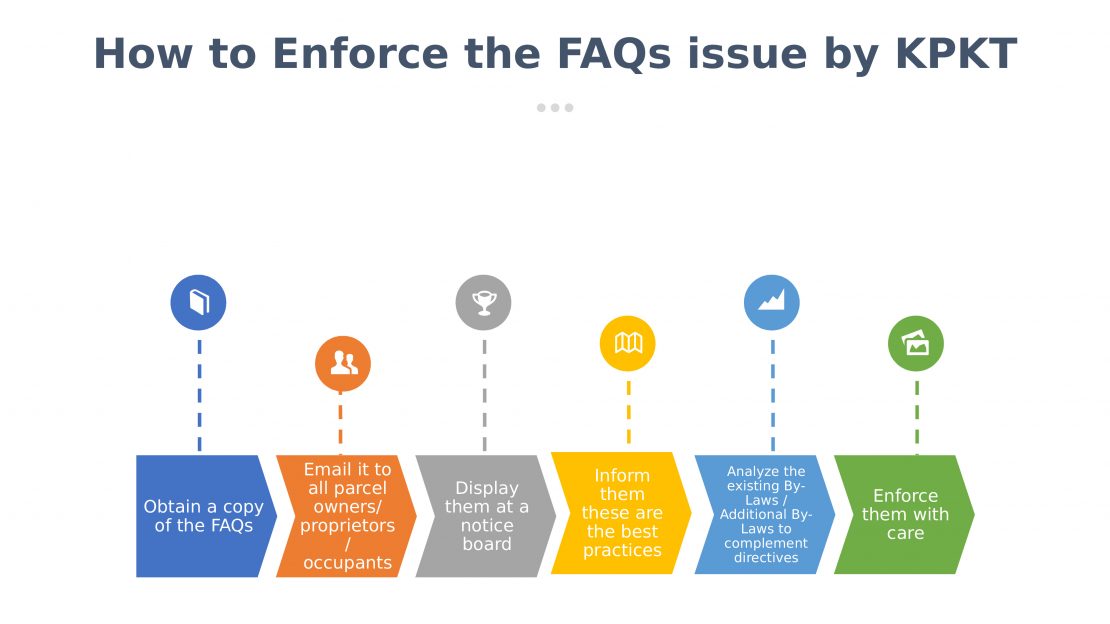
*Our intention in writing this article is mainly to inform that there may be a legal ground in challenging those directives and in no way suggesting that you should challenge the validity or deliberately contravene those directives. Even if they are not made as Regulations by the Minister, they are the best practices to be adopted by all strata scheme to curb Covid-19. For the record, we value the efforts undertaken by KPKT in coming up with those FAQs.
The Gazette of the Prevention and Control of Infectious Diseases (Declaration of Infected Local Areas) (Extension of Operation) (No. 2) ORder 2020 are enclosed below:
